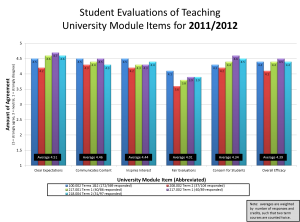September 2012 is here, and the first week is already over! I forgot how tired I feel by Friday afternoons — wow! It’s like I can feel my body powering down. But my fatigue is warranted. This has been such a fun week! My husband and I kicked off the school year with a whirlwind trip to Ontario to witness my friend’s wedding last weekend. She and I lived together all through undergrad, and were basically inseparable during that time. A few of our other lovely friends from undergrad were there too, so it was wonderful to catch up and reminisce about good old Waterloo. The experience also served to remind me of what a profound impact my undergraduate experience had on my life, both intellectually and socially… which got me pumped to be a part of other people’s undergraduate experience!
On Tuesday I arrived in class at 5pm… and sat down in the student chairs. Yes, I’m taking a course! Why, you ask? Well, I want to. I value the classroom as a rich opportunity to learn, and I felt it was time to sit down and feel what it’s like to learn in that way again. I chose the course Psyc 312A: History of Psychology for many reasons. First, Dr. Andrea Perrino is amazing. I was a TA for her a long time ago and was inspired then by her enthusiasm. I wanted the chance to learn from her, as one teacher to another, to consider her pedagogical choices and prompt me to reflect on my own. Faculty rarely ever watch each other teach; I was grateful she agreed I could take her class for this rich opportunity. Second, I am (finally!) interested in the content! I’ve been teaching intro psych (3 years and counting), research methods (5 years and counting), and statistics (recently renewed after a few years’ hiatus). These are broad, generalist courses: my training in my home area of social psychology is useful but not always directly. Over these years these courses have prompted me to cultivate an interest in the discipline as a whole, and I felt it was time for me to really consider the origins and development of my discipline to enrich how and what I teach in these generalist courses. Psychology is only about 150 years old, so it shouldn’t be too hard, right? Ha!
One of the things Andrea (I mean… Dr. Perrino) did on her first day was started foremost with an introduction the the history of psychology. The topic. Not the syllabus. Sure, that came later, but she kicked off with a passionate rationale for why this course is important. It was inspiring, and influenced the way I began my courses on Wednesday. Instead of starting with the syllabus, I started with the topic, the reasons why it’s important to take this course. Based on feedback after that first class, I seem to have succeeded in inspiring at least some students to be excited about our course (even research methods!). In fact, I barely covered the syllabus at all in Intro, but did so using an i>clicker quiz today. I did that last year too, but this year I was more deliberate in my choice of what to reveal on the first day versus the second. The subject is most important… how we get there is important too, but secondary.
My students have been fantastic this week! Research methods felt like a class reunion from last year’s intro — fantastic to see so many of my fabulous students returning for more psychology, and I can’t wait to meet everyone else! And intro… well… I’ve never had two completely-filled hours of student meetings on the first day of class! I have had such fun meeting so many students this week. Their energy is palpable: it’s a new year, a new beginning, and we’re going to have a great time!
Here’s (sort of) what I see when I look out from the front of my intro psych classroom: 270ish energized students! Click on the image to enlarge it. See you next week!



 Follow
Follow

